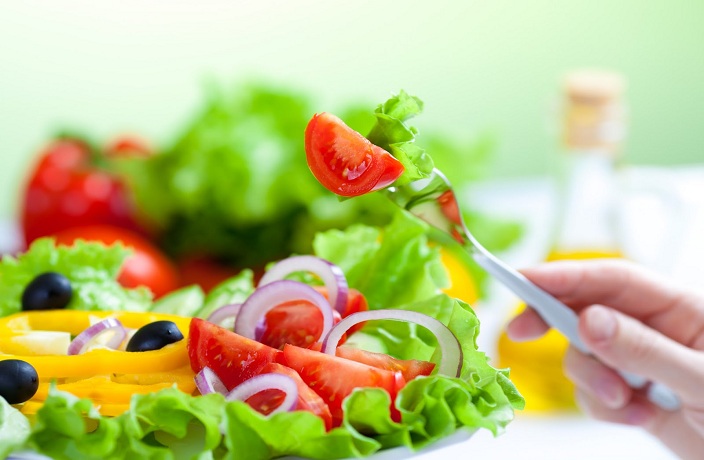After two weeks' introduction, we believe you must have had a general idea about the three lifestyles and the significance of the diets. Now, without further ado, we are going to talk with the experts one-on-one and see how we can fit these lifestyles into our daily life.

Apart from the diet, what other elements are included in the Keto lifestyle?
Keto focuses primarily on diet, but sleep, stress and exercise all play important parts in achieving and keeping you in ketosis. Stress is a constant trouble, as we all know, but poor sleep or over-exercising equals more stress on the body. Stress, in any form, affects our adrenals. One job of these 'fight or flight' glands is to regulate blood sugar. So, too much stress means too much glucose in the blood. This affects our ability to make ketones or stay in ketosis and can be one of the biggest roadblocks when doing Keto. That said, the right type of exercise can increase ketone production and be an excellent promoter of ketosis.
The type of exercise one should choose is dependent on their state of health. Running for a stress prone person would exacerbate the stress and this individual may be advised to do something less intense, like walking combined with weights or resistant/bodyweight training. I personally believe that whatever exercise one chooses, it should be something that they love, that way it is sustainable.
How can people maintain this lifestyle considering the fast pace of Shanghai living?
It takes discipline and organization to live a Ketogenic lifestyle. In terms of incorporating this lifestyle into a busy routine, cooking in batches and freezing for later is handy, and when in doubt, a boiled egg, tin of sardines in olive oil and an avocado can also fill the stomach and keep the energy going for hours. When your body is adapted, there is no problem having only two meals a day or even conducting intermittent fasting, which will make food preparation and the constant need of energy supply less of an issue.
What are three things that people can implement straightaway to improve their wellbeing?
• Hydrate! Drink only water regularly throughout the day.
• Quit foods with added sugar. Snack on foods like avocado, boiled eggs, nuts and seeds.
• Most people are fatty acid deficient. Introduce a variety of healthy fats into your diet. Regardless of whether you choose to go low-carb, healthy fats in the diet are a MUST! They are building blocks for every cell membrane in the body and provide energy, stimulate our hor-mones, help us absorb the fat-soluble vitamins A, D, E and K, protect our organs and, above all, they make food taste better.

Apart from the diet, what other elements are included in the Bulletproof lifestyle?
Critical thinking. As a journalist, I was originally drawn to Bulletproof because of its questioning of accepted conventional wisdom, much of which is manufactured by corporate food, pesticide, pharmaceutical and other industries. For example, the demonization of saturated fats was famously concocted by vegetable oil companies in the US (brilliantly exposed in the bestseller The Big Fat Surprise). Bulletproof also uses the most advanced modern testing to determine how to craft your diet. I love this rational, science-based approach. We don't have to blindly guess what vitamins, minerals or neurotransmitter supplements we should be taking, modern medicine has developed these tests, although few people know about them. Meditation, cognition, performance and recovery are also brought into the modern era by utilizing heart rate variability training, neurofeedback, float tanks, smart drugs, micro-dosing, cryotherapy, infrared light therapy and lots more really fun and geeky techniques.
Where do you food shop in Shanghai?
I buy vegetables either online or from my local wet market, imported grass-fed beef from Australia, wild fish from a private supplier and my dear ayi carries back some meats and eggs from her hometown where her family raises animals naturally. We also grow some of our own herbs.
How can people maintain this lifestyle considering the fast pace of Shanghai?
Bulletproof eating means tons of vegetables and fats, moderate meats and fish and low sugar. Try to cook a few times a week, at least some simple and quick meals. I love dinner parties with friends! The hardest part when eating out is that Bulletproof avoids vegetable, seed, peanut and soybean oils, as these are industrially processed, toxic oils: they are oxidized, bleached, deodorized and high in omega-6. However, unless you have a serious allergy or autoimmune illness, I encourage moderation – don't make yourself crazy or become a shut-in. I still go out to eat, but I try to order foods cooked in butter, animal fat, steam or water. Hotpot is a great option if you know a place with a pure no-additive broth. Approach your diet with a joyful curiosity every day for what foods are going to make you feel your greatest, not a feeling of restriction or guilt.
Coach Crystyl’s note to readers:
With Bulletproof, there's no restricting calories or portions. The handy Bulletproof Diet Roadmap outlines ‘green zone’ foods, which you can eat freely (think vegetables and healthy fats), and ‘red zone’ foods to avoid (like sugar, grains and beans). Get the full Bulletproof Roadmap for free, along with information about Bulletproof mindfulness and relationships by visiting www.crystylized.com.

How can we recognize Primal approved food?
The food that our Paleolithic ancestors would recognize, in other word, food that our body evolved to eat. At the center of a Primal meal are seasonal vegetables, dietary fat (coconut oil, ghee, tallow, lard, butter, olive oil, macadamia oil and avocado oil) followed by pasture-raised meat, wild-caught fish, eggs, herbs, moderate amounts of nuts, seeds, seasonal fruit, coffee, high-fat dairy products. There is also an allowance for ‘sensible indulgence’ such as pure dark chocolate and an occasional glass of red wine. Primal is also about avoiding foods such as refined sugar, processed products, grains, genetically modified organisms (GMO) and industrial seed oils such as canola, corn, sunflower and soybean.
Even though the Primal diet focuses on grass-fed and organic produce, if they are hard to come by, then conventional meat and vegetable options are still better than grains, refined sugar and processed food.
How can people maintain this lifestyle considering the fast pace of Shanghai?
Carry snacks in your bag as you don’t want to be left without food or be tempted by processed, junk and fast foods. My favorite foods include avocado, raw carrots and celery sticks, nut butters, canned sardines, grilled meat, cheese, cured meats, roasted vegetables, hard-boiled eggs, fruits, nuts and seeds. Do all your shopping for ingredients online or on your way to or from work. When you need to eat out, opt for sashimi, salads without dressing and grilled meats with vegetables.
What are a few things that people can implement straightaway to improve their wellbeing?
• Buy ingredients, not products. Eat real food. Prepare meals at home.
• Avoid digital stimulation and artificial light after dark, and align your sleep habits more closely with natural circadian rhythm – your body clock.


















